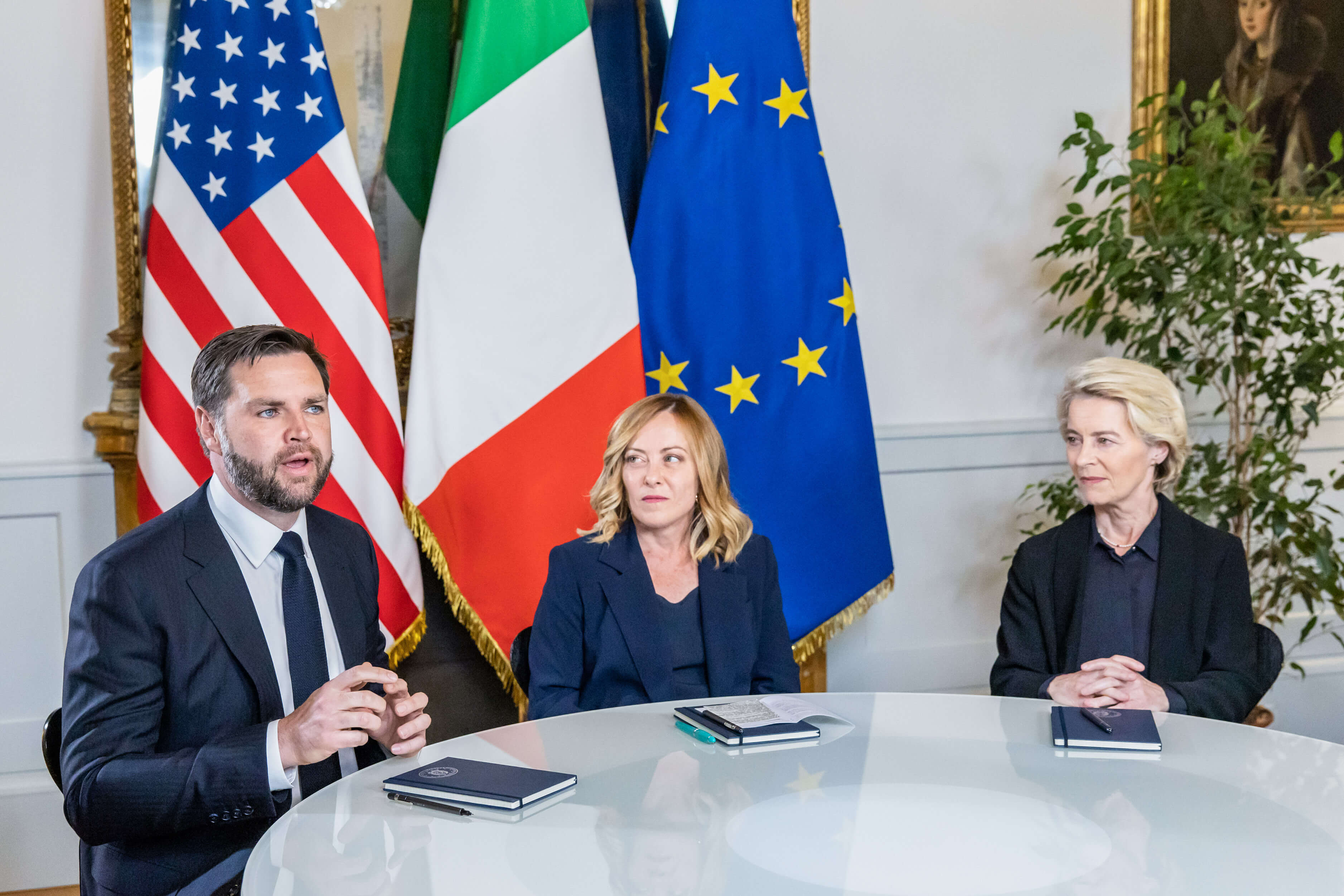Until recently, the specter of an international far-right alliance of populist parties in democracies around the world has been just that: any appearance of cooperation was a form of self-promotion, rather than an expression of true solidarity.
Few far-right figures have made any sacrifices for one another or seriously interfered in other countries’ internal affairs to prop up allies. And efforts to unite the far right in the European Parliament have fallen dismally short.
But that may be changing. US President Donald Trump’s threat to impose punitive tariffs on Brazil, with the explicit goal of protecting its far-right former president, Jair Bolsonaro, from a “witch hunt,” marks a significant shift in tactics.
What’s more, Trump’s meddling in other democracies in the name of “free speech” serves powerful interests in the United States: tech companies that do not want to be regulated by foreign governments.
The international far right is often said to be a contradiction in terms. After all, every far-right leader is a nationalist, which would seem to preclude, by definition, an international alliance.
But this view shows little philosophical sophistication or, for that matter, historical awareness.
United front against “globalists”
In nineteenth-century Europe, liberals like Giuseppe Mazzini helped one another in their various struggles for freedom and independence from imperial powers.
At the time, no one complained that there was a deep contradiction embedded in a liberal international alliance devoted to national self-determination.
By the same token, today’s far-right populists can claim that they form a united front against “globalists” and supposedly illegitimate “liberal elites.”
Far-right politicians have copied from one another what scholars have called “worst practices” for undermining democracies
This rhetoric – and the attendant conspiracy theories, often tinged with anti-Semitism – has easily crossed borders.
Far-right politicians have also copied from one another what scholars have called “worst practices” for undermining democracies.
Just think of the proliferation of laws that force civil-society organizations to register as “foreign agents,” or other thinly veiled repressive tactics.
There is no populist Comintern
The far right also has a transnational ideological infrastructure. To be sure, there is no populist Comintern issuing binding interpretations of doctrine.
But collaboration is real: for instance, Hungarian institutes lavishly endowed by Viktor Orbán’s government are now allied with the Heritage Foundation in the US.
So far, though, there has been a lack of concrete solidarity among populist leaders. When Trump fraudulently claimed to have won the 2020 US presidential election, his international allies, from Indian Prime Minister Narendra Modi to Israeli Prime Minister Binyamin Netanyahu, could have refused to recognize Joe Biden as president.
Instead, they congratulated Biden on his victory, choosing pragmatism over ideological affinity.
But Trump is changing that in his second term, embracing an ideologically driven approach to confronting other countries that obviously undermines long-standing international norms.
Trump is using the threat of a 50% tariff to pressure the government into ending the federal criminal trial against Bolsonaro
In the case of Brazil, he is using the threat of a 50% tariff to pressure the government into ending the federal criminal trial against Bolsonaro for seeking to engineer a coup after losing the 2022 presidential election.
Unlike Trump, who was never held accountable for his role in the January 6, 2021, insurrection at the US Capitol, Bolsonaro – often called the “Trump of the Tropics” – has already been banned from running for office until 2030.
In his letter to the Brazilian government announcing the levy, Trump also accused it of “insidious attacks on … the fundamental Free Speech Rights of Americans,” including the censorship of “U.S. Social Media platforms.”
This highlights another dimension of Trump’s economic bullying: his administration’s crusade against efforts to prohibit hate speech and regulate the digital sphere.
The Trumpists are weaponizing free speech
In February, Vice President J.D. Vance berated Europeans for their supposed lack of respect for “free speech.”
Meanwhile, the State Department has reportedly targeted the prominent Brazilian judge Alexandre de Moraes, who at one point blocked Elon Musk’s X in Brazil and is taking the lead in holding Bolsonaro criminally accountable for his conduct.
Big Tech is clearly displeased with the extensive regulations that the European Union and Brazil have placed on its industry.

In February, Vice President J.D. Vance berated Europeans for their supposed lack of respect for “free speech”
As in other areas – notably its attacks on higher education – the Trumpists are weaponizing free speech to exert power over supposed political adversaries.
The hypocrisy is apparent: while advocating for deregulation of platforms ostensibly to protect free speech, the US government is snooping around in foreigners’ social-media accounts for speech it dislikes (and then refusing a visa or entry on this basis).
Pious talk of defending democracy as a shared Western value sits uneasily with the abject disrespect for other countries’ right to determine their own approach to platform regulation.
Whereas far-right leaders of smaller countries are limited by realpolitik, Trump can use America’s might to advance his punitive-cum-populist agenda at will.
After all, a pliant Republican Party will not question his abuse of the 1977 International Emergency Economic Powers Act.
True, the courts may ultimately decide that his desire for political revenge hardly constitutes an “emergency,” but the damage will have been done.
As in other areas where his administration has taken plainly illegal actions, many of those being targeted will seek a deal rather than a fight. Solidarity is costly, but not for Trump.
Jan-Werner Mueller is a Professor of Politics at Princeton University.